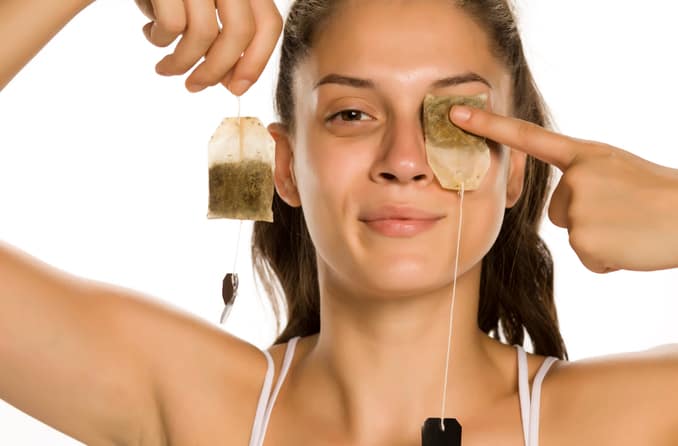All Categories
Featured
Long term exposure to ultraviolet (UV) rays can lead to various eye problems, some of which may result in permanent damages or vision loss. Whether you're outdoors on a bright beach or taking a walk on a cloudy day, recognizing how UV rays affect your eyes and learning how to safeguard them is critical for maintaining healthy and balanced vision.
What Are UV Rays and How Do They Influence the Eyes? UV rays are a type of unseen radiation given off by the sun. There are three sorts of UV rays:
UVA Rays: These permeate deeply right into the skin and eyes, contributing to lasting damages. UVB Rays: These are a lot more intense and can create surface-level damage, such as sunburn or corneal damage. UVC Rays: These are the most dangerous but are absorbed by the Earth's environment and hardly ever position a direct danger. Both UVA and UVB rays can harm numerous components of the eye, consisting of the cornea, lens, and retina.
Short-Term Impacts of UV Exposure. Even a brief period of extreme UV exposure can harm your eyes. A common problem resulting from this is photokeratitis, often defined as "sunburn of the eye." Symptoms consist of:
Uncomfortable or red eyes. Sensitivity to light. Excessive tearing. Temporary blurred vision. Photokeratitis is typically momentary however acts as a tip of the instant dangers of UV radiation.
Long-Term Impacts of UV Direct Exposure. Cumulative UV direct exposure over time can bring about numerous severe eye conditions, including:

Cataracts: UV rays speed up the growth of cataracts, a condition where the lens of the eye ends up being cloudy, causing vision disability. Cataracts are a leading reason for blindness worldwide.
Macular Deterioration: The macula, a component of the retina in charge of central vision, can be damaged by prolonged UV direct exposure, raising the risk of age-related macular degeneration (AMD)
Pterygium: Commonly called "internet user's eye," this problem involves a growth of cells on the white component of the eye, which can cross the cornea and hinder vision.
Pinguecula: UV exposure can trigger yellow-colored areas to base on the conjunctiva, bring about irritability and discomfort.
Skin Cancer Around the Eyes: The fragile skin surrounding the eyes is very susceptible to UV radiation, raising the threat of basal and squamous cell carcinoma.
Safeguarding Your Eyes from UV Damage. The bright side is that securing your eyes from UV radiation is basic and efficient. Right here are some vital ideas:
Wear UV-Blocking Sunglasses. Select sunglasses that block 100% of UVA and UVB rays. Try to find tags indicating "UV 400" security. Wrap-around styles give extra protection, stopping UV rays from getting in from the sides.
Utilize a Wide-Brimmed Hat. A hat with a large brim can obstruct virtually 50% of UV rays, supplying additional protection for your eyes and the fragile skin around them.
Stay Clear Of Height Sun Hours. UV rays are toughest in between 10 a.m. and 4 p.m. Lessen your exterior direct exposure throughout these hours, or ensure you're appropriately safeguarded if you need to be outside.
Protect Your Eyes Year-Round. UV rays exist year-round, even on gloomy or snowy days. Snow, sand, and water can mirror UV rays, intensifying their impacts. Make sunglasses a part of your daily routine, no matter the season.
Consider UV-Blocking Contact Lenses. Several contact lenses now offer UV defense, which can be an additional secure when coupled with sunglasses.
Encourage Eye Defense for Kids. Kid's eyes are much more at risk to UV damage due to the fact that their lenses are clearer, permitting even more UV light to get to the retina. Guarantee they use sunglasses and hats when playing outdoors.
Set Up Normal Eye Tests. Routine sees to an eye care specialist are vital for monitoring your eye wellness. An eye doctor can spot very early indicators of UV-related damage and suggest solutions, such as prescription sunglasses or UV-blocking glasses tailored to your demands.
Conclusion. UV rays might be undetectable, however their effect on your eye wellness is really genuine. Keep in mind, your eyes are one of your most valuable assets-- take the necessary actions to shield them from unsafe UV rays today.
Latest Posts
Protect Your Home with Top Quality Residential Roofing
Don’t Miss Special Auto Repair Offers in Chicago at Montclare Auto Repair
Find Brake Repair & More: Comprehensive Services Guide from Montclare Auto Repair
More
Latest Posts
Protect Your Home with Top Quality Residential Roofing
Don’t Miss Special Auto Repair Offers in Chicago at Montclare Auto Repair
Find Brake Repair & More: Comprehensive Services Guide from Montclare Auto Repair